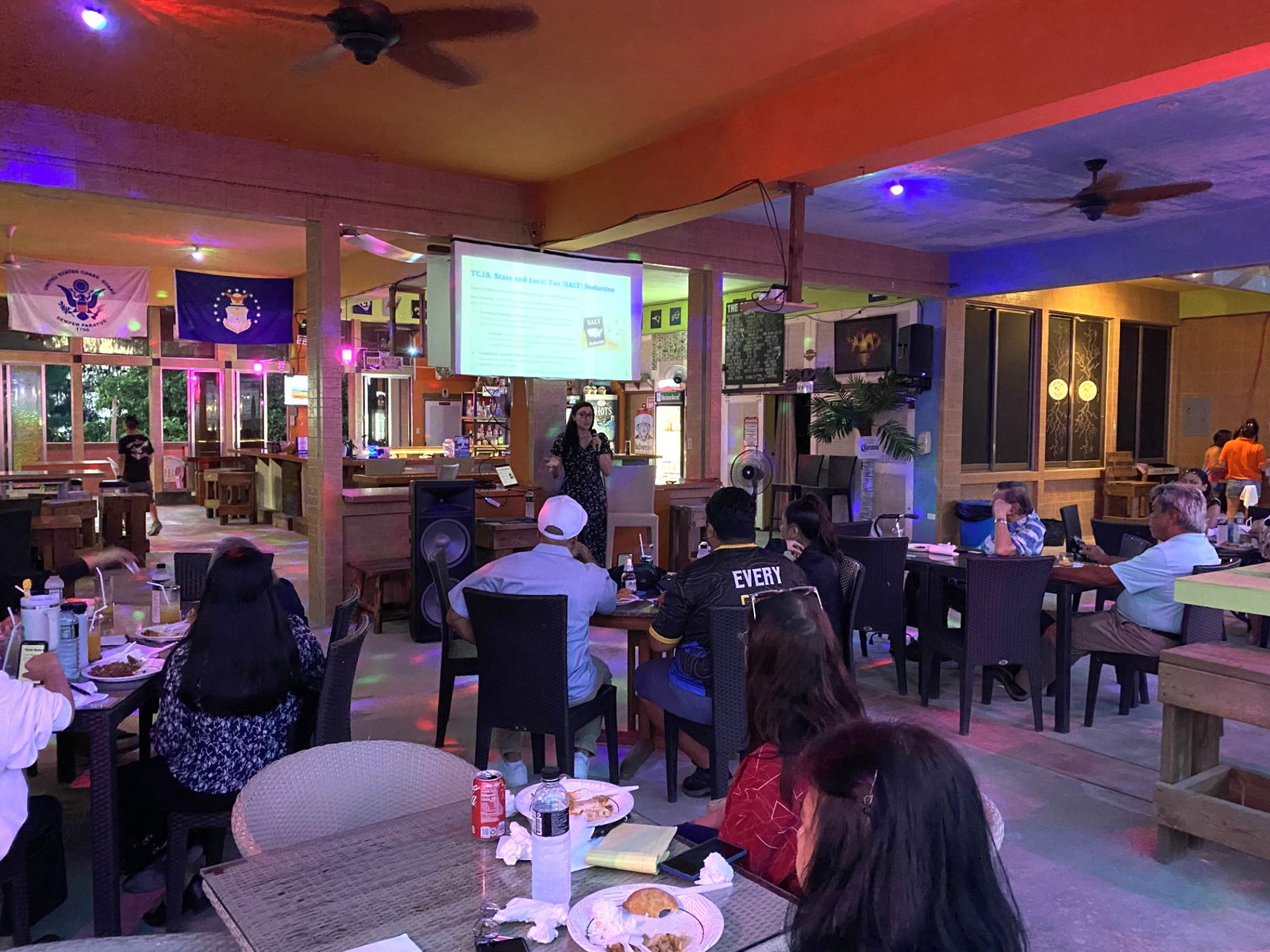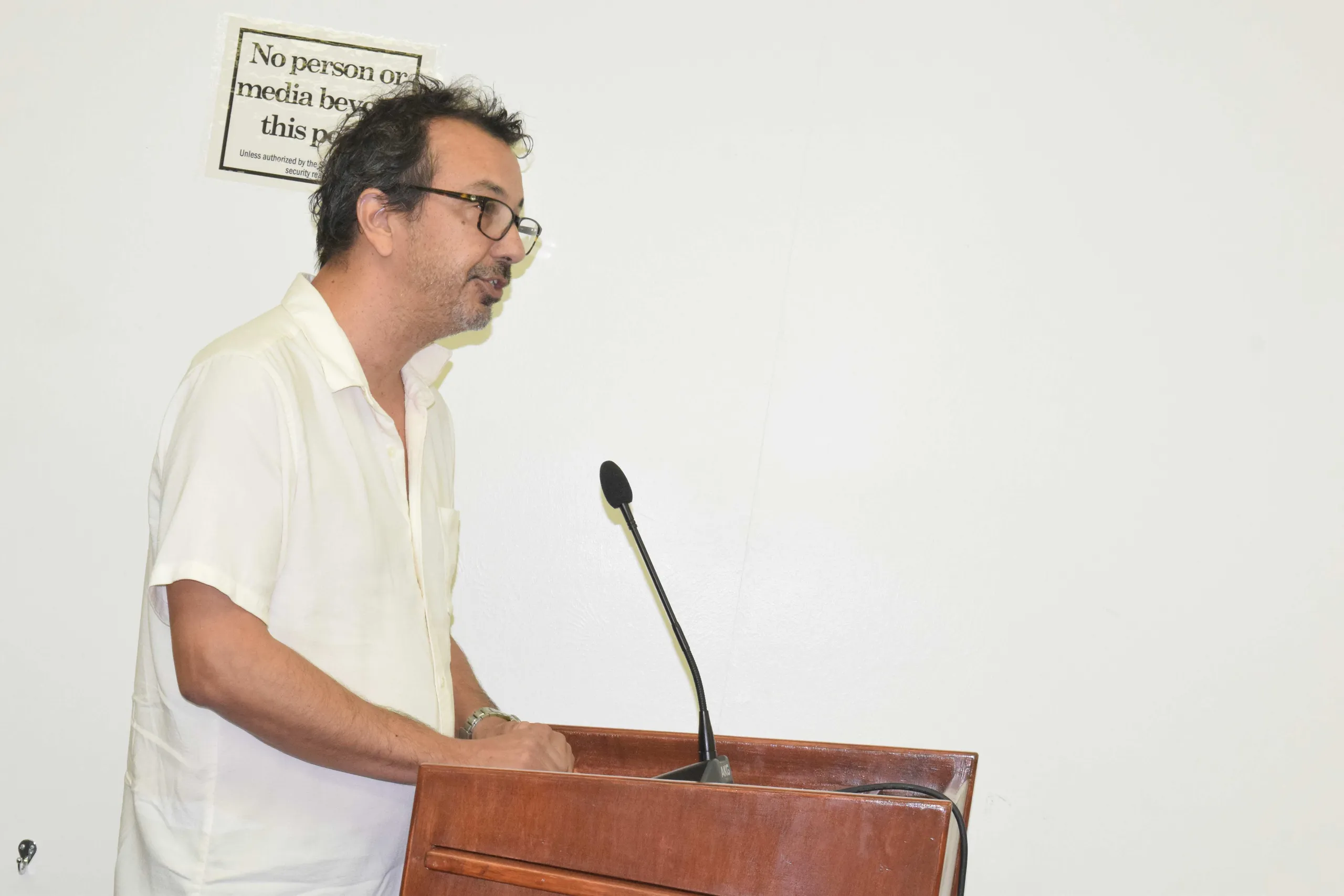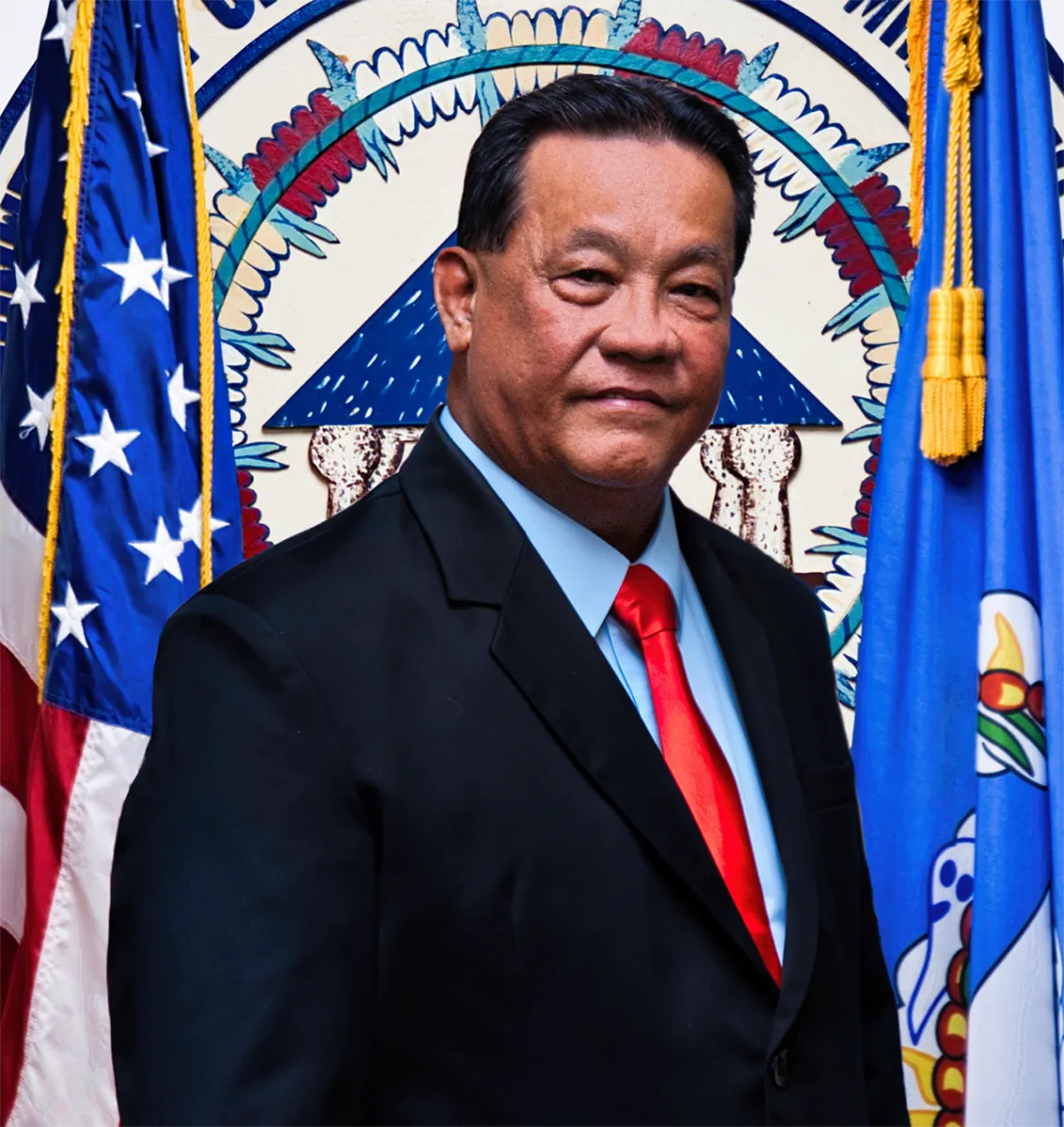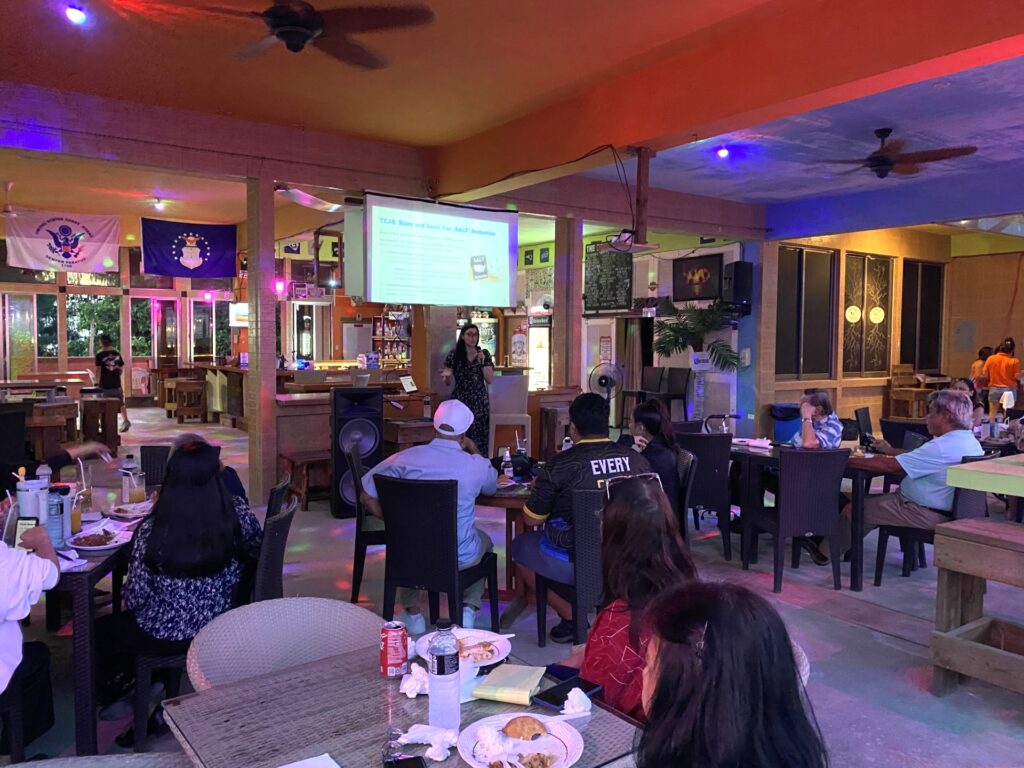
Tax attorney Tina Azarvand speaks at a workshop with business owners at Last Shot Bar in Chalan Kanoa on Tuesday, Jan. 7
TAX attorney Tina Azarvand conducted a tax workshop on Tuesday, Jan. 7 at Last Shot Bar in Chalan Kanoa to discuss common tax issues as well as upcoming tax developments that affect employers and employees in 2025 and beyond.
The workshop covered topics relevant to CNMI business owners.
Azarvand said workers on CW-1 visas are not exempt from FICA tax, and issues can arise for both employees and employers if the tax is left unpaid.
“In the past, prior to [2009], there was no FICA tax on CW worker visa holders. Now there is,” she said. “There’s a very common misconception here that they are exempt from FICA tax. If you haven’t been withholding FICA tax, then you need to because that can create implications not only with the [Internal Revenue Service] but with [U.S. Citizenship and Immigration Services] as well.”
Employers may face obstacles in securing future CW-1 visas for their employees, Azarvand said, adding that employees could be prevented from becoming U.S. citizens if they owe taxes.
She also took time to speak about the misclassification of employees, which is a “common tax pitfall” all over the nation.
Azarvand said there can be confusion in distinguishing when a person qualifies as an independent contractor or an employee.
She said the IRS examines the degree of control a business has over an individual, as well as the nature of the relationship between the person and the business, when distinguishing between independent contractor and employee status.
Azarvand said an independent contractor takes on “entrepreneurial risks” when completing a job for a business — meaning, the contractor invests money into the project, with the risk of incurring reimbursable expenses.
An independent contractor can also set their own schedule and is not required to be exclusive to one client at a time, although they may choose to be.
Employees, for their part, receive benefits such as equipment they don’t have to purchase or rent, insurance, vacation pay, sick pay, and more.
Azarvand also spoke about upcoming tax developments that may occur under the Trump administration.
She said President-elect Donald Trump wants to make tips tax-free, which would benefit service industry employees who rely on tips in their jobs.
“There is no FICA tax if you’re a waiter, but if you’re a stylist or a masseuse…that is subject to FICA tax,” she said. “That’s something that Donald Trump does want to address and have it be where tips are tax free for everybody so there’s no disproportionate treatment based on your job role.”
She said service providers may prefer commission-based roles, knowing that their tips will not be subject to tax.
Azarvand also said that the Trump administration could exempt overtime pay from income taxes while keeping it subject to FICA taxes.
This could help businesses attract workers during peak times, such as weekends and holidays, while employees could enjoy higher take-home pay by picking up more shifts.











